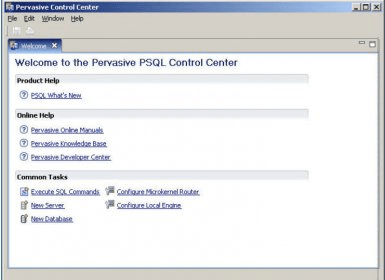

Is to act as that advocate and present a blueprint for a serverĬonfiguration that will serve as the best platform for both No and usually have no such in-house advocates for the database.

Know why your application rolled over dead. Over dead, you would either issue the purchase order or you would Memory, and 32 terabytes of RAID disk or your application would roll Needed a server with quad 4.8-gigahertz processors, 64 gigabytes of Probably be inclined to listen to her or him. You were paying a DBA the usual $150,000+ per year, you would Probably be required to have on-staff a Data BaseĪdministrator (notice the capitalization it's expensive). Required an Oracle database or a Microsoft SQL database, you would Most good things, it is a double-edge sword. Pervasive.SQL, which is a major advantage, for the most part. Much of the fault, if there is any, lies in the LowĬost of Ownership, Self-Administrative, No-DBA nature of There could be some issue with any of them that affects system

Pervasive.SQL, nor your application software (although of course, Necessarily with Pervasive Software, your application vendor, Pervasive.SQL users are in the same boat. Performance from your application, you are not alone. Well-performing application, and won't do justice to either yourĪpplication (whether painstakingly developed in house or purchased) However, Pervasive.SQL can only work with what'sĪvailable, and the minimum system configuration will not ensure a More recent releases of Pervasive.SQL do an excellent job of Minimum system configuration required for a successful Your copy of Pervasive.SQL gives a thorough recommendation for the


 0 kommentar(er)
0 kommentar(er)
